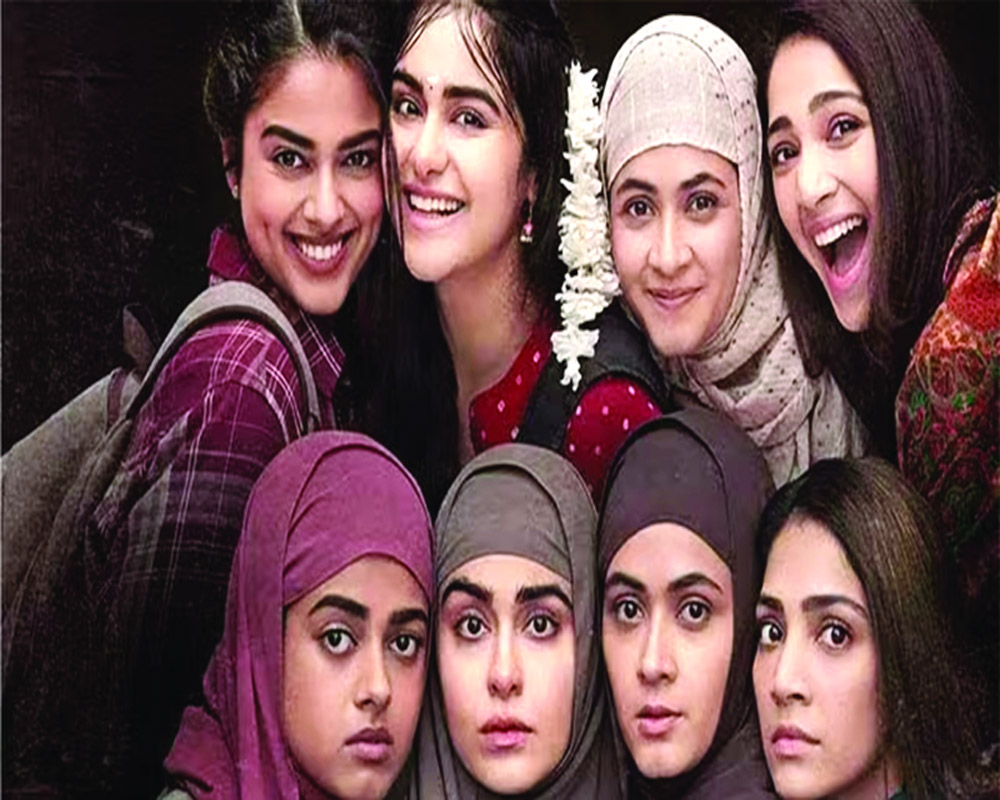The Kerala Story has been making waves ever since it opened in theatres but its content is far from reality, it is a fantasy at best
The central theme of the film revolves around three girls who fell victim to “manipulative conversion” to Islam that practically destroyed their lives. The main protagonist is Shalini Unnikrishnan, a convert to Islam. She narrates her ordeal from her prison in Afghanistan, of how she once wanted to become a nurse but was brainwashed and manipulated by religious vanguards, turned into an ISIS terrorist and sent on her way to Syria.
It is loosely based on the accounts of three women from Kerala who converted to Islam and travelled with their husbands to join ISIS in Afghanistan between 2016 and 2018, along with two other women and their husbands. Their husbands were killed in the fighting and these women remain in an Afghan prison. Incidentally, only one of these women, Nimisha Nair alias Fathima Isa, was Hindu and married to a Christian, who subsequently converted to Islam as well. The other two women were Christians before their conversion. The Government of India has refused to repatriate them as they remain hardcore adherents of ISIS philosophy, unlike what has been depicted in the movie.
While it has been alleged there are many more such people in prison in Afghanistan, official records only point to four. The film-makers have also suggested that there are “many girls” who have been manipulated into converting to Islam and in support quote then Chief Minister of Kerala, V S Achuthanandan, who, in 2010, said that fundamentalist Muslim organisations were using “money and marriages to make Kerala a Muslim majority state”.
In that context, the issue of “manipulative conversion”, commonly termed “love jihad”, is concerning and cannot be wished away. Not because of the conversion itself, our Constitution allows us the freedom to practice as we wish, but because of the motive and the manner such conversions are undertaken. It must be added that such allegations of fraudulent conversions have been made against some Christian denominations as well. Such actions damage the secular fabric of our society, which is why we have stringent laws against it. One estimate suggests about 7000 girls from the State converted to other religions over the last decade and the total number of Indians who joined ISIS was not more than 250, with about 20% from Kerala.
Critics agree that the movie is watchable as a work of fiction, but what detracts and gives weight to allegations that it is nothing more than a propaganda film, is its adverse depiction of all Muslims in general and repeated assertions that there are over 32000 such cases. This is untrue and a Bench of the Supreme Court has reproached the producers of the film for distortion of facts, directing them to add a disclaimer to that effect.
However, this is a theme that resonates greatly with the Hindutva lobby, as we saw from the Prime Minister’s exhortations to the public to see the movie, during his election rallies in Karnataka. Recently, Mr Amit Malviya, head of the BJP IT Cell, wrote on Twitter that “love Jihad is real and dangerous. Our girls are being lured away and used as cannon fodder for radical terror organisations. We can bury our heads in the sand, like an ostrich, at our own peril. It will engulf the rest of us sooner than we think. The Kerala Story is a grim reminder of what lies ahead if we don’t act now”.
Taken at face value this may seem truly scary, but the truth is it has no basis in fact and is aimed at spreading fear and consolidating votes. Comparison of census data from 2001 and 2011 shows that the Hindu population in Kerala, for example, declined from 56.16% to 54.73%, or 1.43%, while the Muslim population increased from 24.70% to 26.56% or 1.86%. A simple interpolation, at existing growth rates, suggests that the Muslim population would equal that of the Hindu population only by the last decade of this century. Unlikely, as growth rates overall are on the decline. If anything, in the coming years Kerala’s problems will not be about religion, but managing migrants from other states that keep its economy ticking!
Similarly, Mamata Banerjee’s ban on the film presently stayed by the Supreme Court, and its “voluntary” non-screening in Tamil Nadu by movie theatres, is over the top and only feeds the long-standing narrative of minority appeasement. We must acknowledge that to be truly secular, breaking the stranglehold of those who benefit by dividing us through religion is inescapable. An essential step in this direction can be the introduction of the long overdue Uniform Civil Code (UCC), which would codify and apply a set of uniform laws related to personal matters such as marriage, divorce, adoption, and inheritance to all citizens, regardless of their religion.
(The author, a military veteran is a Visiting Fellow with the Observer Research Foundation and Senior Visiting Fellow with the Peninsula Foundation, Chennai)

























